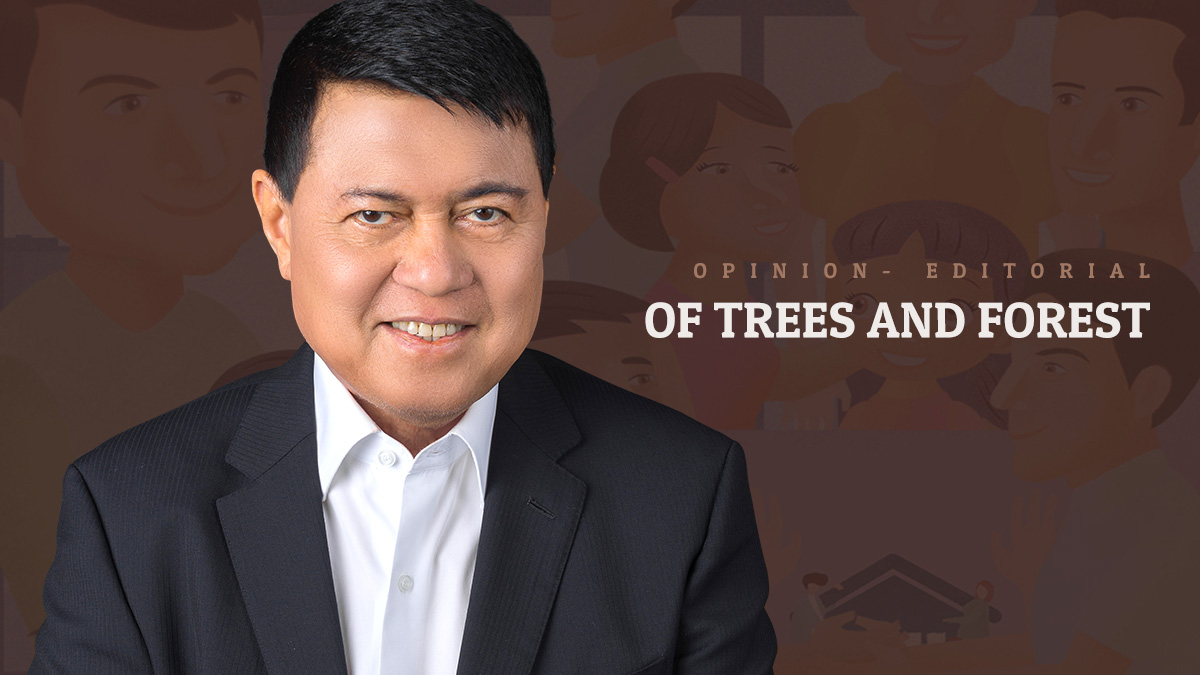
A Whole New World: Part 2
Many of the possible changes that we should expect in our post-coronavirus world have been with us pre-coronavirus. The pandemic will simply accelerate and heighten the need for such changes.
For instance, app-based groceries and food deliveries had been thriving prior to the implementation of the enhanced community quarantine (ECQ) but the demand for these online services exploded in the past few weeks as people have been understandably wary about going out. Now, more than ever, stay-at-home Filipinos are buying their groceries, food, and everything else through their smartphones.
Is this something that will happen even after the pandemic is defeated? This is a question that I am very interested in, given the fact that the Villar Group of Companies manages several retail stores. I have been in brainstorming online with our team to think about the operations AllHome, AllDay Supermarkets and convenience stores, our malls, and Coffee Project once the ECQ is lifted. What would be the new normal?
I do not think that a post-coronavirus world will see the end of the physical retail stores. There is the problem of too many out-of-stock items online as well as the occasional problems with deliveries and payments. I think app-based, online shopping will increase but it will not completely eradicate the physical stores. This means that groceries and supermarkets need to implement strict physical distancing measures during store hours. We cannot allow people to crowd our stores if and when the ECQ is lifted.
Another possibility in the post-coronavirus world is the increase in the use of cashless payment platforms in order to avoid infections through the bills and coins we handle. A number of cashless payment platforms had been available in the Philippines even before the outbreak: GCash, Paymaya, Alipay, All Easy, WeChat Pay, Grab Pay, PayPal, and various credit cards. The question is this: Can we efficiently implement a cashless system in terms of payment for public transportation? This will help reduce transmission of the virus tremendously in very crowded situations.
Speaking of transportation, our experience with the COVID-19 crisis should give us a sense of urgency to fast-track efforts to decongest the National Capital Region (NCR). There is a reason why the NCR is the epicenter of the pandemic: it is the center of commerce and activity and its population is bursting at the seams. This should be a medium to long-term answer to avoid future crises such as the one we face right now. In the short term, government agencies should start drawing up plans on how to strictly implement physical distancing in trains, buses, jeepneys, etc. This is very important if we want to avoid the second wave of virus infections. Should the private and public sectors initiate staggered working hours in order to manage the number of people who commute? Should LTO, LTFRB, and the DOTR start meeting with transport owners and associations in order to draw up a plan on how to avoid overcrowding and implement a safe two-meter distance between passengers?
This is the same question that the Department of Education (DepEd) needs to answer. Should we open schools? Or should we start getting serious about online-learning platforms? We know that the lack of classrooms has forced our public schools to cramp dozens of students inside one room, a condition ripe for a second outbreak. Several universities in the Philippines and abroad have started experimenting with online platforms like Google Hangouts, Zoom, and others. Webinars have been very popular before the outbreak so it might be a good idea to start thinking about this.
People have been asking when the lockdown will be lifted. I think it’s the wrong question to ask right now. The critical question is this—what will happen after the lifting of the ECQ? We need to prepare our government agencies, the public sector, and most of all our people for post-coronavirus scenarios. And the most important consideration should not be economics but the certainty that there will not be a second wave of transmission that will force us into another prolonged lockdown.
Source:





